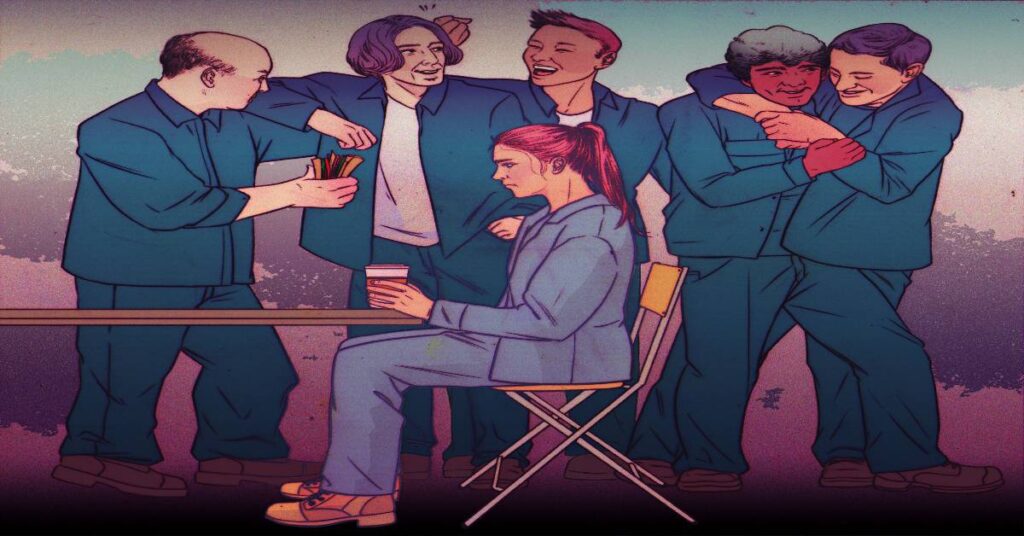In the intricate tapestry of human emotions, few threads are as universally recognized yet as uniquely experienced as the sensation of feeling left out. This experience, characterized by a blend of loneliness, exclusion, and longing, is not confined to any specific age group or social setting. Whether it’s missing out on a gathering, being bypassed in professional settings, or simply not fitting into a certain social circle, the sting of exclusion is a poignant reminder of our inherent desire for connection and belonging. In navigating these choppy emotional waters, it is crucial to have a compass, such as strategies and perspectives to guide us back to a place of self-assurance and social harmony.
Recognize and Validate Your Feelings
The first step in addressing the discomfort of feeling left out is to acknowledge and validate your emotions. It’s entirely natural to feel upset, sad, or even angry when you perceive that you’re being excluded. These feelings are valid and deserve your attention. Rather than brushing them aside, take a moment to sit with them. Understand that it’s okay to feel this way and that many others have shared this experience. By doing so, you create a space for self-compassion, which is the foundation for overcoming these challenging emotions.
Simultaneously, it’s crucial to engage in introspection. Ask yourself why you feel left out and what specific events or behaviors are triggering these emotions. Sometimes, the act of identifying the root cause can, in itself, be immensely therapeutic. It allows you to approach the situation with more clarity and understanding, setting the stage for constructive coping strategies.
Cultivate a Supportive Social Network

Building a supportive social networkis like planting a garden; it takes time, care, and patience, but the eventual bloom is worth the effort. Start by identifying the relationships in your life that make you feel valued and included. These could be family members, close friends, or even colleagues. Invest time and energy in these relationships. Genuine, heartfelt interactions can significantly counterbalance the feelings of exclusion you might be experiencing elsewhere.
Additionally, consider branching out and forming new connections. Join clubs, groups, or online communities where you share common interests with others. These settings provide a natural foundation for forming new relationships. Over time, these connections can grow into meaningful friendships, further enriching your social fabric and providing a buffer against future feelings of exclusion.
Engage in Self-Reflection and Personal Growth
Sometimes, feeling left out can be an opportunity in disguise—an invitation to engage in self-reflection and personal growth. Take this time to explore your interests, hobbies, and passions. Engaging in activities that you enjoy can not only boost your mood but also help you discover new aspects of your personality and capabilities. This journey of self-discovery can be incredibly empowering, making you less reliant on external validation and more anchored in your self-worth.
Parallel to this, consider setting personal goals and working towards them. Achieving these goals can instill a sense of accomplishment and purpose, qualities that are often overshadowed when one is preoccupied with feelings of exclusion. Remember, personal growth is a continuous journey, one that is enriched, not diminished, by the challenges we face along the way.
Practice Empathy and Understanding

It’s also important to practice empathy and understanding, both towards yourself and others. Sometimes, the feeling of being left out stems from miscommunications or misunderstandings. Give others the benefit of the doubt and consider that their actions may not be intentionally exclusive. Open, honest communication can often clarify these situations and lead to deeper, more empathetic connections.
Moreover, extend that same empathy and understanding to yourself. Be patient with your emotions and recognize that healing and adjustment take time. Treat yourself with kindness and avoid self-criticism, understanding that your worth is not defined by your social standing or the perceptions of others.
Embracing Resilience: Moving Forward
In the end, feeling left out is a chapter in your life, not the entire story. Embracing resilience involves acknowledging your feelings, learning from the experience, and using it as a stepping stone to build a stronger, more self-aware version of yourself. It’s about recognizing that while you can’t always control external situations, you can control your response to them. By focusing on self-care, fostering meaningful connections, and pursuing personal growth, you can navigate through these moments with grace and emerge with renewed strength and confidence. Remember, the journey of overcoming the feeling of being left out is as much about reconnecting with others as it is about reconnecting with yourself. It’s an opportunity to reaffirm your values, understand your worth, and appreciate the unique qualities you bring to every interaction. With each step, you’re not just moving past feelings of exclusion; you’re moving towards a more fulfilled, connected, and resilient life.
